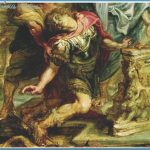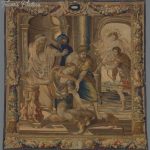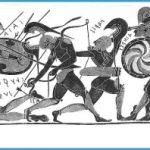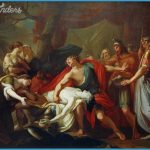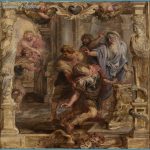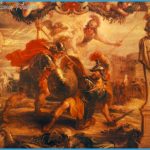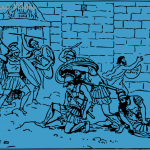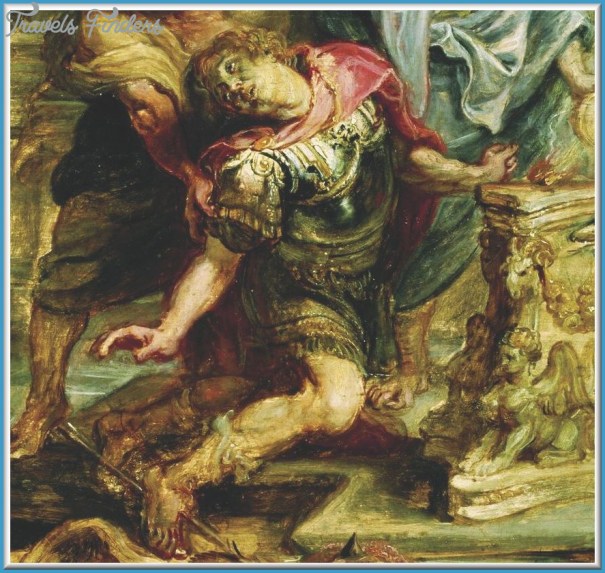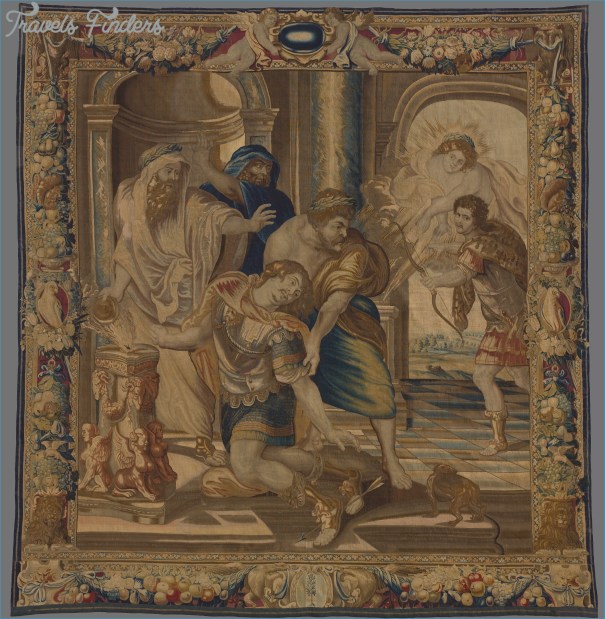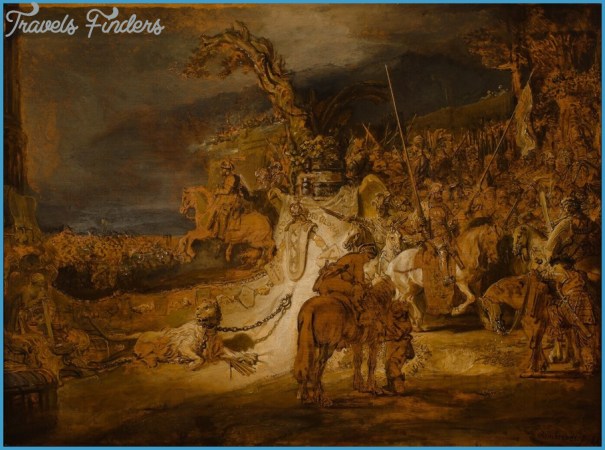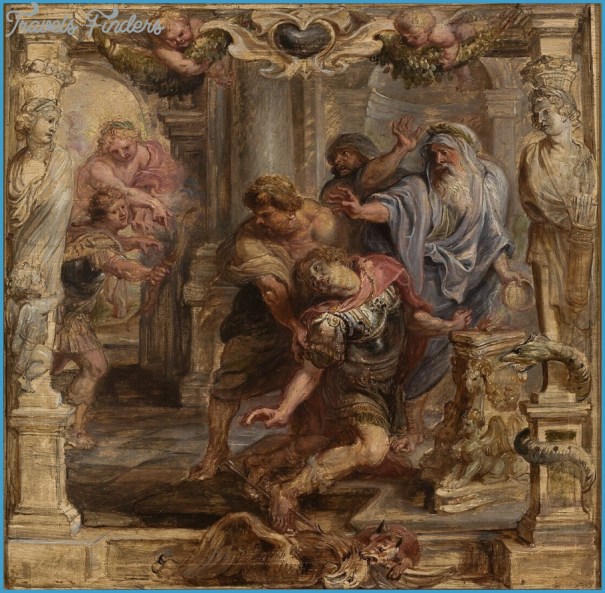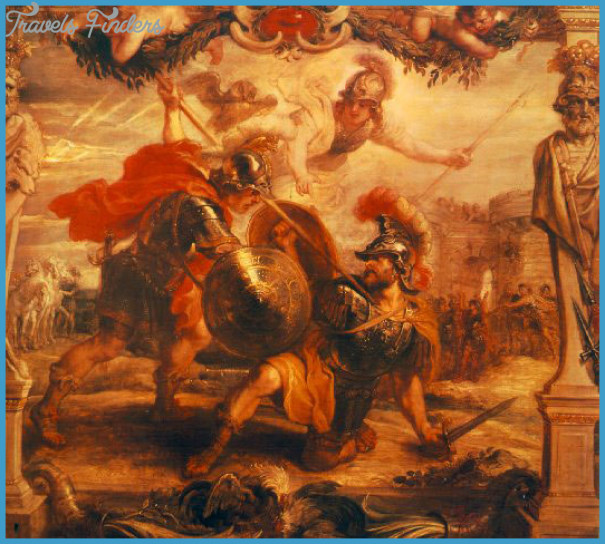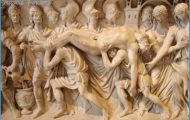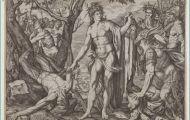Achilles continued to harry his Trojan enemies and their allies. In single combat he killed both the Amazon queen Penthesilea and the Ethiopian king Memnon, the son of Eos and Tithonus. At last, death came to Achilles, not at the hands of a great warrior, but through the skill of the archer, Paris. As Achilles fought beneath Troy’s Scaean Gates, Apollo guided Paris arrow. It struck the one place where Achilles was not invulnerable: his right heel. The Greeks and Trojans fought hard over his corpse, lying ‘in the swirling dust, huge and heroic but no longer caring for his battle-skills’.
The Death of Achilles & its Consequences Photo Gallery
Ajax took Achilles body to the Greek ships, where Thetis and her nymphs rose from the waves, ‘and the sound of their other-worldly lamentation rippled across the surface of the sea’. As the Muses sang their requiem and the army clashed their weapons on their shields to honour him, Achilles was cremated. His bones were laid in a gold urn with Patroclus remains, and a mound was raised on the headland, ‘to be seen far off from sea by those alive today and those still to come’. As the ghost of Agamemnon, who provides this description in the Odyssey, concludes: ‘Even in death your name is not forgotten, but your fame [kleos] will live for ever among men.’
Some claimed that Zeus made Achilles immortal. An early traveller, Leonymus of Croton, even claimed to have seen the spirits of Achilles and other Greek heroes on White Island near the Danube’s mouth. Others said that Achilles spent eternity in the Islands of the Blessed, the husband of Medea. Late mythographers, keen for a romance between Achilles and Polyxena, had him consider betraying the Greeks in return for her hand in marriage.
Ajax believed that by right he should inherit Achilles armour, but out of spite – or brainwashed by Athene – the Greeks awarded it to Odysseus. In god-lashed fury Ajax stalked the Greek camp, intent on massacring all who had humiliated him, but at sunrise he awoke surrounded by the corpses of not men but cattle. Athene had deluded him. Humiliated, he killed himself with the sword he had received from Hector. Only his half-brother Teucer honoured Ajax’s corpse, until Odysseus persuaded Agamemnon to bury it.

